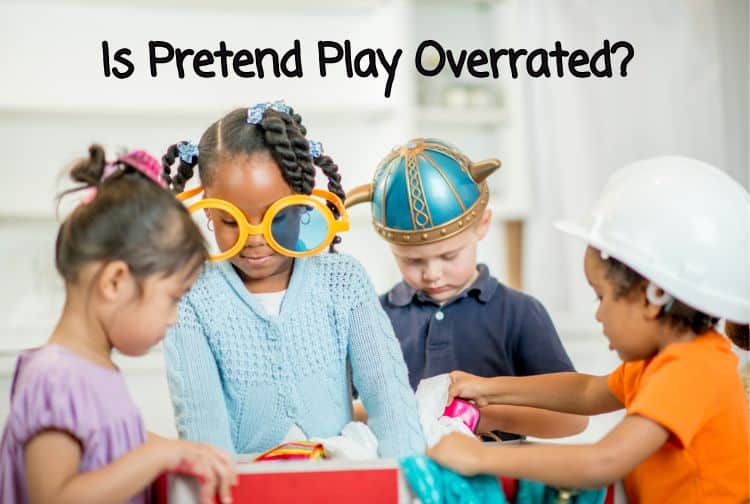
Welcome to the wonderful world of pretend play, where a cardboard tube is a telescope, and the space under the dining room table is a cave. Pretend play, also called make-believe and imaginary play, has been regarded as crucial to children’s healthy development.
The benefits are many, apparently
- Practicing listening, looking, and talking develop language skills.
. - Pretend play also develops an understanding of what is being communicated through body language, such as smiles and nods.
. - Practicing negotiation skills, turn-taking, and sharing develop social skills.
. - Pretend scenarios often involve problem-solving and the ability to infer what the following action in the game should be; both problem-solving and creating these inferred actions develop reasoning skills.
. - Understanding and expressing their feelings through reenacting certain experiences, and taking on roles that encourage discipline and empathy aid emotional development.
. - Because children can be anyone and do anything in the pretend world, pretend play encourages imagination and creativity.
.
Little evidence that pretend play is crucial
However, despite over 40 years of research examining how pretend play might help development, there is little evidence that it has a crucial role. Pretend play is, at most, just one of many routes to a positive developmental outcome, says the authors of a study by the University of Virginia. Published online in the journal Psychological Bulletin, the researchers state that pretend play is not as important to child development as researchers previously thought.
For their study, University of Virginia researchers analyzed more than 150 previous studies to find the positive relationship between pretend play and children’s mental health development. They found minimum evidence supporting this notion.
Lead author Angeline Lillard, U.Va professor of psychology in the College of Arts and Sciences, says that the previous “evidence” claiming pretend play is directly associated with healthy child development is from “flawed methodology.” Whoever was writing this evidence may have raised children who played pretend, and therefore, they were biased about what was actually showing up on the results.
Lillard continued: “We found no good evidence that pretend play contributes to creativity, intelligence, or problem-solving. However, we did find evidence that it just might be a factor contributing to language, storytelling, social development, and self-regulation.”
.

